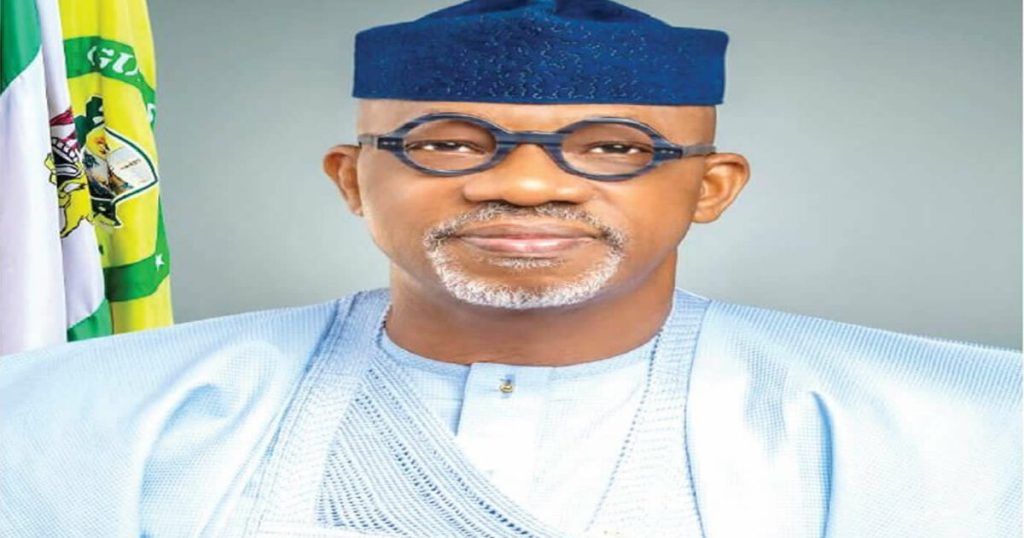Paragraph 1: The Urgent Need for Collaborative Housing Solutions in Nigeria
Nigeria faces a critical housing deficit, estimated at a staggering 28 million units as of late 2023 and early 2024. This massive shortfall translates to a financial burden of approximately N21 trillion required to bridge the gap. The primary driver of this deficit is the rapid population growth outstripping the pace of housing construction. This imbalance disproportionately impacts low- and middle-income households who struggle to afford the high costs of available housing, leaving a vast segment of the population vulnerable to inadequate living conditions. Addressing this challenge requires a concerted effort involving both the public and private sectors.
Paragraph 2: The Role of Public-Private Partnerships in Bridging the Housing Gap
Damilola Soneye, Chairman of the Housing Committee of the Ogun State House of Assembly, has emphasized the crucial role of private sector involvement in tackling Nigeria’s housing crisis. Recognizing the scale of the challenge, he argues that government efforts alone are insufficient to meet the burgeoning housing demand. Soneye calls for stronger collaboration between government and private entities to accelerate housing development and provide affordable options for citizens. This collaborative approach, he believes, is essential to alleviating the housing deficit and ensuring access to decent living conditions for all Nigerians.
Paragraph 3: Highlighting Successful Public and Private Housing Initiatives in Ogun State
Soneye commended the Ogun State Governor, Dapo Abiodun, for his substantial investments in affordable housing projects. He cited numerous housing estates developed across various locations within the state, including Abeokuta, Sagamu, Ilaro, Ijebu Ode, Iperu, and Kobape, as evidence of the government’s commitment to addressing the housing needs of its citizens. These projects demonstrate a proactive approach to providing affordable and accessible housing options. Furthermore, Soneye applauded the initiative of High Chief Olakunle Olalekan, the Asiwaju of Orile Imo, in developing a private housing estate in Bara, Orile Imo. This project, he noted, exemplifies the positive impact of private sector engagement in complementing government efforts.
Paragraph 4: Celebrating Private Sector Contribution and Encouraging Further Engagement
Soneye praised Chief Olakunle Olalekan’s housing project as aligning perfectly with Governor Abiodun’s vision for public-private partnerships in infrastructure development and improvement of living standards. He viewed the private estate not only as a valuable contribution to the housing stock but also as a testament to the enabling environment created by the state government. This supportive environment encourages private individuals and organizations to actively participate in the development process, creating a synergy that ultimately benefits the citizens of Ogun State. Soneye further urged other private individuals and corporate organizations to emulate Chief Olalekan’s initiative and contribute to the collective effort to bridge the housing gap.
Paragraph 5: Empowering Communities Through Philanthropy and Development Initiatives
Chief Olakunle Olalekan, during the commissioning of the housing estate, reaffirmed his commitment to investing in developmental projects within the community. He expressed gratitude to Governor Abiodun for fostering an environment conducive to private sector participation in the state’s development agenda. Coinciding with his birthday celebration, Chief Olalekan further demonstrated his commitment to community development by distributing cash grants and providing working tools such as sewing machines, hair dryers, and barbering equipment to selected community members. This act of philanthropy aims to empower individuals with the means to improve their livelihoods and contribute to the economic well-being of the community.
Paragraph 6: The Synergistic Impact of Public and Private Initiatives
The convergence of government-led housing projects and privately funded initiatives like Chief Olalekan’s estate showcases a powerful model for addressing the housing deficit in Nigeria. This collaborative approach leverages the strengths of both sectors: the government’s capacity for large-scale projects and policy implementation, and the private sector’s innovation, efficiency, and responsiveness to market demands. By fostering such partnerships, Nigeria can accelerate the pace of housing development, provide more affordable housing options for its citizens, and create a more sustainable and inclusive housing market. The combined impact of these efforts promises a brighter future for individuals and communities, contributing to improved living standards and overall societal well-being.














